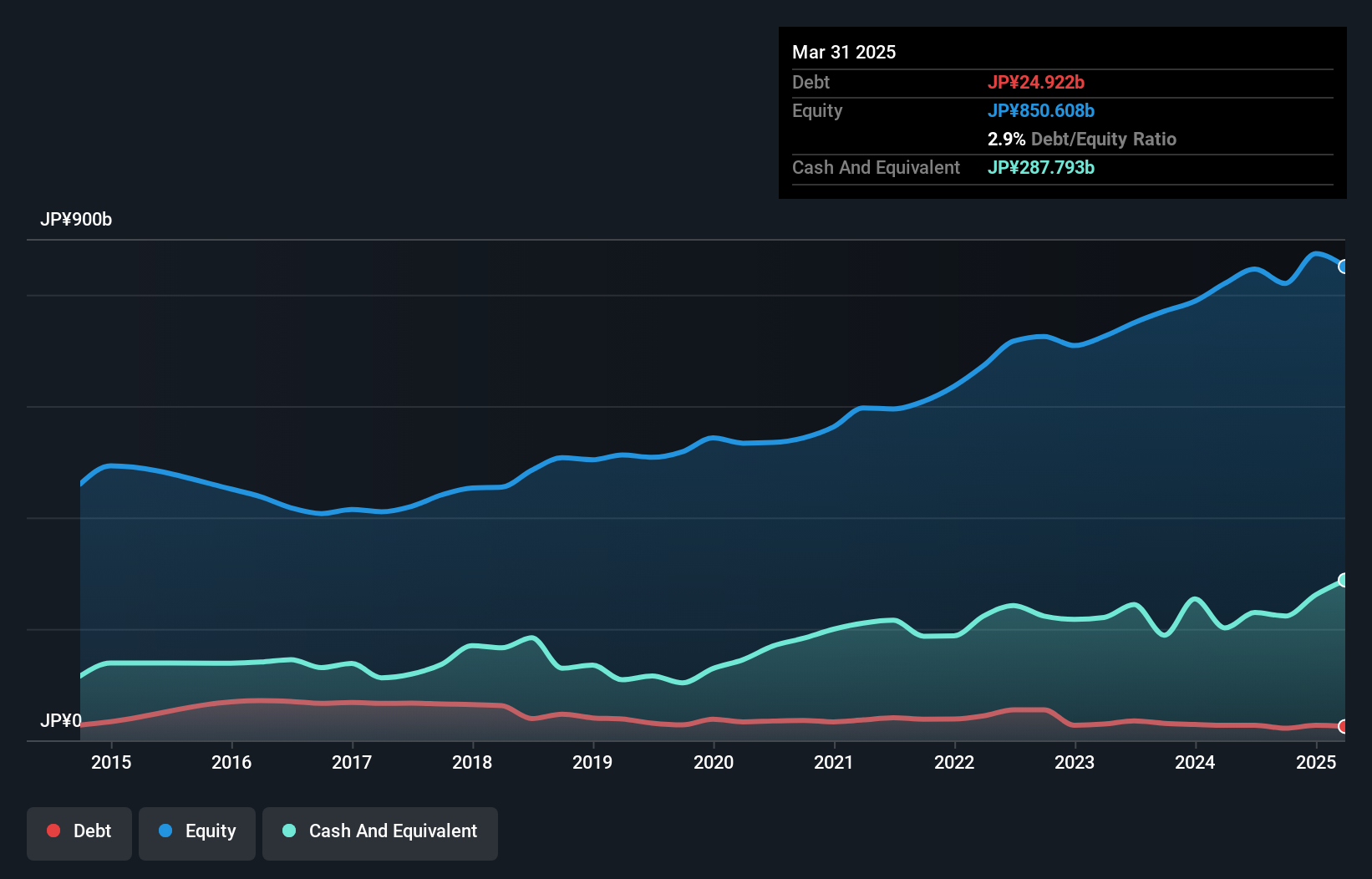Warren Buffett famously said, 'Volatility is far from synonymous with risk.' So it might be obvious that you need to consider debt, when you think about how risky any given stock is, because too much debt can sink a company. We can see that Unicharm Corporation (TSE:8113) does use debt in its business. But is this debt a concern to shareholders?
What Risk Does Debt Bring?
Debt assists a business until the business has trouble paying it off, either with new capital or with free cash flow. If things get really bad, the lenders can take control of the business. While that is not too common, we often do see indebted companies permanently diluting shareholders because lenders force them to raise capital at a distressed price. Of course, the upside of debt is that it often represents cheap capital, especially when it replaces dilution in a company with the ability to reinvest at high rates of return. The first thing to do when considering how much debt a business uses is to look at its cash and debt together.
How Much Debt Does Unicharm Carry?
The image below, which you can click on for greater detail, shows that Unicharm had debt of JP¥24.9b at the end of March 2025, a reduction from JP¥26.9b over a year. But it also has JP¥287.8b in cash to offset that, meaning it has JP¥262.9b net cash.

How Healthy Is Unicharm's Balance Sheet?
Zooming in on the latest balance sheet data, we can see that Unicharm had liabilities of JP¥273.2b due within 12 months and liabilities of JP¥63.6b due beyond that. Offsetting these obligations, it had cash of JP¥287.8b as well as receivables valued at JP¥150.8b due within 12 months. So it actually has JP¥101.8b more liquid assets than total liabilities.
This surplus suggests that Unicharm has a conservative balance sheet, and could probably eliminate its debt without much difficulty. Simply put, the fact that Unicharm has more cash than debt is arguably a good indication that it can manage its debt safely.
See our latest analysis for Unicharm
On the other hand, Unicharm saw its EBIT drop by 9.7% in the last twelve months. That sort of decline, if sustained, will obviously make debt harder to handle. The balance sheet is clearly the area to focus on when you are analysing debt. But ultimately the future profitability of the business will decide if Unicharm can strengthen its balance sheet over time. So if you want to see what the professionals think, you might find this free report on analyst profit forecasts to be interesting.
Finally, a company can only pay off debt with cold hard cash, not accounting profits. While Unicharm has net cash on its balance sheet, it's still worth taking a look at its ability to convert earnings before interest and tax (EBIT) to free cash flow, to help us understand how quickly it is building (or eroding) that cash balance. During the last three years, Unicharm produced sturdy free cash flow equating to 72% of its EBIT, about what we'd expect. This free cash flow puts the company in a good position to pay down debt, when appropriate.
Summing Up
While we empathize with investors who find debt concerning, you should keep in mind that Unicharm has net cash of JP¥262.9b, as well as more liquid assets than liabilities. The cherry on top was that in converted 72% of that EBIT to free cash flow, bringing in JP¥88b. So is Unicharm's debt a risk? It doesn't seem so to us. Over time, share prices tend to follow earnings per share, so if you're interested in Unicharm, you may well want to click here to check an interactive graph of its earnings per share history.
Of course, if you're the type of investor who prefers buying stocks without the burden of debt, then don't hesitate to discover our exclusive list of net cash growth stocks, today.
New: AI Stock Screener & Alerts
Our new AI Stock Screener scans the market every day to uncover opportunities.
• Dividend Powerhouses (3%+ Yield)
• Undervalued Small Caps with Insider Buying
• High growth Tech and AI Companies
Or build your own from over 50 metrics.
Have feedback on this article? Concerned about the content? Get in touch with us directly. Alternatively, email editorial-team (at) simplywallst.com.
This article by Simply Wall St is general in nature. We provide commentary based on historical data and analyst forecasts only using an unbiased methodology and our articles are not intended to be financial advice. It does not constitute a recommendation to buy or sell any stock, and does not take account of your objectives, or your financial situation. We aim to bring you long-term focused analysis driven by fundamental data. Note that our analysis may not factor in the latest price-sensitive company announcements or qualitative material. Simply Wall St has no position in any stocks mentioned.
About TSE:8113
Unicharm
Engages in the manufacturing and sale of care-related and pet care-related products in Japan and internationally.
Flawless balance sheet established dividend payer.
Similar Companies
Market Insights
Community Narratives




